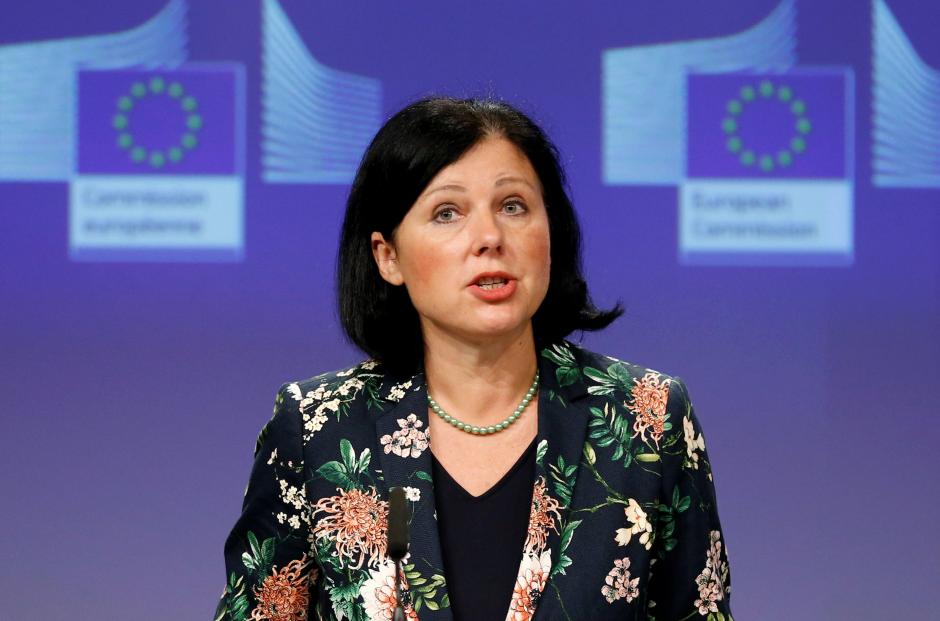EU’s efforts to combat voter manipulation
August 6, 2018 | Expert Insights

Ahead of European Parliament elections in next May, Brussels is set to launch an EU-wide drive to combat voter manipulation through social media.
The EU commission said that the parliamentary elections are subject to "fake news" and “cyberattacks.”
Background
The EU commission is an institution of the European Union. It is also defined as EU's politically independent executive arm. The commission is responsible for proposing legislation, implementing decisions, upholding the EU treaties and managing the day-to-day business of the EU.
The European Parliament is the directly elected parliamentary institution of the European Union (EU). The Parliament is composed of 751 members, who represent the second-largest democratic electorate in the world and the largest trans-national democratic electorate in the world. The recent European elections of 2014, held from 22 to 25 May 2014 was the largest simultaneous transnational elections ever held anywhere in the world. Elections take place, directly in every member-state, every five years. Elections have been conducted since 1979. As of 2014 there have been eight elections.
Cambridge Analytica is a private company founded in 2013. It uses data mining (processes that extract patterns and knowledge from big data), and data analysis “to change audience behaviour”. Cambridge Analytica was revealed to have partnered with Ted Cruz and Donald Trump’s election campaigns. According to records, the Trump campaign paid the firm over $6 million.
It was reported in May 2017 that Facebook played a key role in influencing the outcome of both the 2016 US Presidential elections and the Brexit vote. Those in charge of these digital campaigns believe that social networks were decisive in both the electoral outcomes. Last September, Facebook admitted to finding approximately $100,000 worth of ads connected to Russia. Russia allegedly played a role in flooding social media platforms like Facebook and Twitter with fake news stories depicting Hillary Clinton negatively.
Analysis
Vera Jourová, the justice commissioner, expressed that national governments need to coordinate their efforts in order to tackle fake news and the misuse of personal data in micro-targeted political advertising. Further efforts taken by the commission highlight the EU-wide code of practice on disinformation to encourage social media sites to limit the micro-targeting of voters. They also proposed to make funding more transparent to users. The commission is also set to publish plans in autumn, in order to encourage national regulators to work together in combating manipulation of voters.
A report published by the Oxford Internet Institute had found evidence of social media manipulation campaigns in 48 countries. This number had increased from 28 last year. The report also pointed out that in each of these countries, at least one political party or government agency uses social media as a platform to manipulate public opinion.
The recent French elections revealed that presidential candidate who has been friendly towards the Russians lost to newcomer Emmanuel Macron. He was subjected to Russian hacking and false allegations in Russian-sponsored news outlets during the campaign.
All political parties in Germany have agreed not to employ automated bots in their social media campaigns. As hard-to-detect cybertools are frequently used by Russia to spread bogus news accounts. Thus, European experts came to a conclusion that, the best antidote to Russian influence, is to make it visible.
Jourová also said that, “I’d like to focus further on better protecting elections in the light of the Facebook and Cambridge Analytica scandal.” She also added that, “We need to improve our cooperation on such topics at European level. We need to tackle the online challenges to elections head-on.”
Counterpoint
Lisa-Maria Neudert, a researcher at Oxford university’s computational propaganda project expressed that, the danger that creeps in with well-meaning policies in Europe is that it could be seized upon by authoritarian states to justify repression of speech.
Voters need information to make decisions, and voters receive this information through journalists’ and media who give it to them. Regina Lawrence, executive director of the UO SOJC’s Agora Journalism Centre and George S. Turnbull Portland Centre expressed that, “Research has shown that some candidates can be literally left invisible because they can’t win enough interest from the media.”
Assessment
Our assessment is that the social media in general has come under scrutiny for hate and terrorist propaganda, influencing campaigns, and proliferation of “fake news” ahead of elections. Though the EU commission is taking timely initiatives to avoid a case of voters meddling in the parliamentary elections next year, it may be difficult to regulate people’s emotion. We feel that a proper solution might be to caution people and advise them to be more judicious on what they read on social media.








Comments